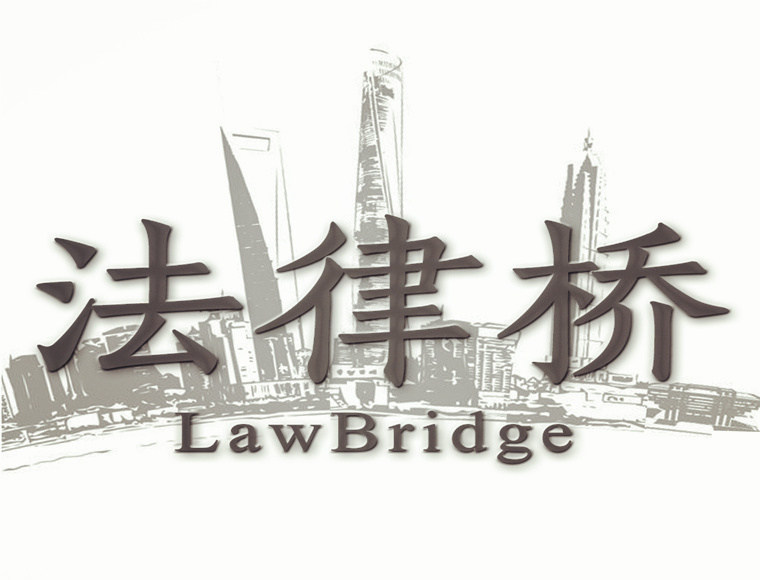Can state-owned enterprises make equity repurchase commitments?
In the M&A activities involving state-owned enterprises, can state-owned enterprises make a commitment to buy back equity to investors as a promise? Can the repurchase price be directly stipulated in the equity repurchase contract? For example, can the repurchase price be determined according to the following formula (abbreviation: debt-based pricing formula):
Committed repurchase price = consideration paid by the investor when buying shares × (1+ years of investor holding shares × benchmark annual interest rate of bank loans in the same period) - previous dividends during the investor's shareholding period - previous dividends from the dividend date to the repurchase date at the same period The interest calculated on the benchmark interest rate of bank loans.
Conclusion
Analysis
1
Does the equity repurchase contract need to stipulate the effective conditions?
Regarding the issue of whether the equity repurchase contract needs to stipulate the effective conditions, according to the provisions of Article 502 of the Civil Code, we can analyze and draw the following conclusion: For matters that are stipulated by laws and administrative regulations, approval and other procedures must be completed in advance, If the approval and other procedures are not completed, the contract is "statutory invalid" (but it does not affect the effectiveness of the terms of fulfilling the obligations of submitting for approval and other relevant provisions in the contract), and it is not necessary to make a repeated agreement in the contract that "the contract will not take effect until the approval and other procedures are completed"; However, for matters that are not stipulated in laws and administrative regulations to go through approval procedures, if there is no special agreement on the effective conditions in the contract, the contract will become effective when it is established.
So, should state-owned enterprises repurchase shares to go through approval and other procedures? Drawing on the gist of the "(2022) Supreme Court Minshen No. 232" "Civil Ruling", the current laws and administrative regulations do not require approval for the repurchase of equity by state-owned enterprises. However, as a kind of foreign investment, equity repurchase needs to perform decision-making and approval procedures in accordance with other relevant regulations. No.) and other documents, relevant personnel of state-owned enterprise operation and management may be held accountable.
Some provinces and cities have also made clear regulations on the decision-making and approval procedures that state-owned enterprises should perform to repurchase shares. ) stipulates: "Municipal state-owned enterprises shall not, in principle, sign VAM treaties and repurchase clauses with investors during the mixed ownership reform. After the approval of the board of directors, it will be implemented, and the standardization and feasibility of subsequent operations, as well as the solutions to legal risks and hidden dangers will be fully considered.”
Therefore, when a state-owned enterprise enters into an equity repurchase contract, it should advocate that the agreement be made in the contract that "this contract will only become effective after the state-owned enterprise performs relevant decision-making and approval procedures", otherwise the equity repurchase contract will become effective upon its establishment, and the state-owned enterprise will Faced with the risk of repurchasing equity or contract breach without approval. Furthermore, the parties can also agree in the equity repurchase contract on the specific approval obligations of the promised party and the breach of contract liability when the promised party fails to fulfill the approval obligation, so as to reduce differences and disputes in the execution of the contract.
2
Can the repurchase price be stipulated in the equity repurchase contract?
According to the "Enterprise State-owned Assets Law", "Assets Appraisal Law", "State-owned Assets Appraisal Management Measures" (State Council No. "Provisions on Several Issues" (Decree No. 14 of the Ministry of Finance) and other laws and regulations stipulate that in the process of repurchasing equity by state-owned enterprises, regardless of whether the transferor of the equity is a state-owned enterprise or not, the asset evaluation of the equity to be repurchased shall be carried out. The final transaction price is formed after performing the prescribed procedures on the basis of the appraised value.
The practice of directly specifying the repurchase price in the equity repurchase contract without evaluation violates the relevant laws and regulations of state-owned assets supervision, and the state-owned enterprise and its responsible personnel as the transferee may be held accountable according to law. For example, Article 51 of the "Asset Appraisal Law" stipulates the legal liability for the behavior of "an evaluation agency should be entrusted to conduct a statutory evaluation but has not been entrusted".
In the equity repurchase contract where the state-owned enterprise is the transferee, it is not appropriate to directly agree on the repurchase price, but the parties to the transaction can agree on the formation method of the transaction price in the contract. For example, when the equity transferor is a state-owned enterprise and the equity transfer meets the entry transaction requirements, it can be stipulated in the contract that "when the transferor transfers the equity through the property rights market, the transferee promises to bid at the assessed value to participate in the bidding"; in other cases Under this circumstance, the parties to the transaction can agree in the equity repurchase contract that "the transferee promises to repurchase the equity at the appraised value".
In the equity repurchase contract where the state-owned enterprise is the transferee, there is basically no need for the "debt-style pricing formula". Of course, from the perspective of the transferee, the transferee can accept the practice of pricing according to the lower principle of the "debt-style pricing formula" or the appraised value. That is to say, the repurchase commitments made by state-owned enterprises can only guarantee that investors will exit at a reasonable price (for example, based on the appraised value), but they cannot guarantee that investors will exit with "debt-style pricing" to "guarantee income in drought and flood".
So, can state-owned enterprises repurchase equity at the price of a certain percentage increase in the appraised value? Regarding this issue, we will discuss it in the follow-up "Evaluation Story".
In addition, it needs to be reminded that in the process of equity repurchase, if the equity transferor is also a state-owned enterprise, the transferor should entrust the evaluation; if the equity transferor is not a state-owned enterprise, the transferee should entrust the evaluation.
Relevant information
Article 47 of the "Enterprise State-owned Assets Law of the People's Republic of China" stipulates: "Solely state-owned enterprises, wholly state-owned companies and state-owned capital holding companies merge, split up, restructure, transfer major properties, invest in non-monetary properties abroad, liquidate or have legal In other circumstances where asset evaluation is required by administrative regulations and the articles of association of the enterprise, the relevant assets shall be evaluated in accordance with the regulations.
Article 51 of the "Law of the People's Republic of China on State-owned Assets of Enterprises" stipulates: "Where in violation of the provisions of this law, an evaluation agency should be entrusted to conduct statutory evaluation but fails to do so, the relevant department shall order it to make corrections; if it refuses to make corrections, it shall be fined more than 100,000 A fine of less than 500,000 yuan; if the circumstances are serious, the directly responsible person in charge and other directly responsible personnel shall be punished according to law; if losses are caused, they shall be liable for compensation according to law; if a crime is constituted, criminal responsibility shall be investigated according to law.”
Article 3 of the "State-owned Assets Appraisal Management Measures" (Decree No. 91 of the State Council) stipulates: "Any entity possessing state-owned assets (hereinafter referred to as the possessing entity) shall conduct asset appraisal under any of the following circumstances: (1) asset auction or transfer; 2) Enterprise mergers, sales, joint ventures, and shareholding operations; (3) Establishment of foreign-invested enterprises with foreign companies, enterprises and other economic organizations or individuals; (4) Enterprise liquidation; situation."
Article 6 of the "Interim Measures for the Evaluation and Administration of State-owned Assets of Enterprises" (Decree No. 12 of the State-owned Assets Supervision and Administration Commission) stipulates: "An enterprise that commits any of the following acts shall evaluate the relevant assets: (2) foreign investment with non-monetary assets; (3) merger, division, bankruptcy, and dissolution; (4) changes in the proportion of state-owned shareholders in non-listed companies; (5) transfer of property rights; (6) transfer and replacement of assets; (7) Leasing the whole or part of the assets to non-state-owned units; (8) Repaying debts with non-monetary assets; (9) Litigation involving assets; (12) accepting non-state-owned units to pay off debts with non-monetary assets; (13) other matters that require asset evaluation as stipulated by laws and administrative regulations."
Article 22 of the "Interim Measures for the Management of State-owned Assets Evaluation of Enterprises" (Decree No. 12 of the State-owned Assets Supervision and Administration Commission) stipulates: "When an enterprise conducts economic activities corresponding to asset evaluation, it shall use the approved or filed asset evaluation results as a reference for pricing; When the transaction price is lower than 90% of the evaluation result, the transaction should be suspended, and the transaction can only be continued after obtaining the consent of the original economic behavior approval agency.”
Article 3 of the "Regulations on Several Issues concerning the Evaluation and Management of State-owned Assets" (Decree No. 14 of the Ministry of Finance) stipulates: "Where the possessor commits any of the following acts, the relevant state-owned assets shall be evaluated: (2) Foreign investment with non-monetary assets; (3) Merger, division, liquidation; (4) Changes in the proportion of original shareholders’ equity other than listed companies; (5) The whole or part of other than listed companies Property rights (equity) transfer; (6) Asset transfer, replacement, auction; (7) Lease of whole assets or part of assets to non-state-owned units; (8) Determining the value of assets involved in litigation; Items to be evaluated.” Article 6 stipulates: “Where the occupying unit has any of the following acts, the relevant non-state-owned assets shall be evaluated: (1) purchase of non-state-owned assets; (2) exchange of assets with non-state-owned units; (3) Accept non-state-owned units to repay debts with real assets."
Article 502 of the "Civil Code of the People's Republic of China" stipulates: "Contracts established in accordance with the law shall become effective upon establishment, unless otherwise stipulated by the law or otherwise agreed by the parties. According to the provisions of laws and administrative regulations, the contract shall be handled Approval and other formalities shall be governed by its provisions. Failure to go through approval and other formalities affects the effectiveness of the contract, and does not affect the effectiveness of the terms of fulfilling obligations such as submitting for approval and other relevant clauses in the contract. It bears the responsibility for violation of this obligation. According to the provisions of laws and administrative regulations, if the modification, transfer, and termination of the contract should go through approval and other procedures, the provisions of the preceding paragraph shall apply.
PE&TMT Lawbridge

Presiding lawyer: Yang Chunbao, first-class lawyer
Phone/WeChat: 1390 182 6830
Business contact and submission email:
chambers.yang@dentons.cn
Address: Floor 9/24/25, Shanghai World Financial Center, 100 Century Avenue, Shanghai






















































First, please LoginComment After ~